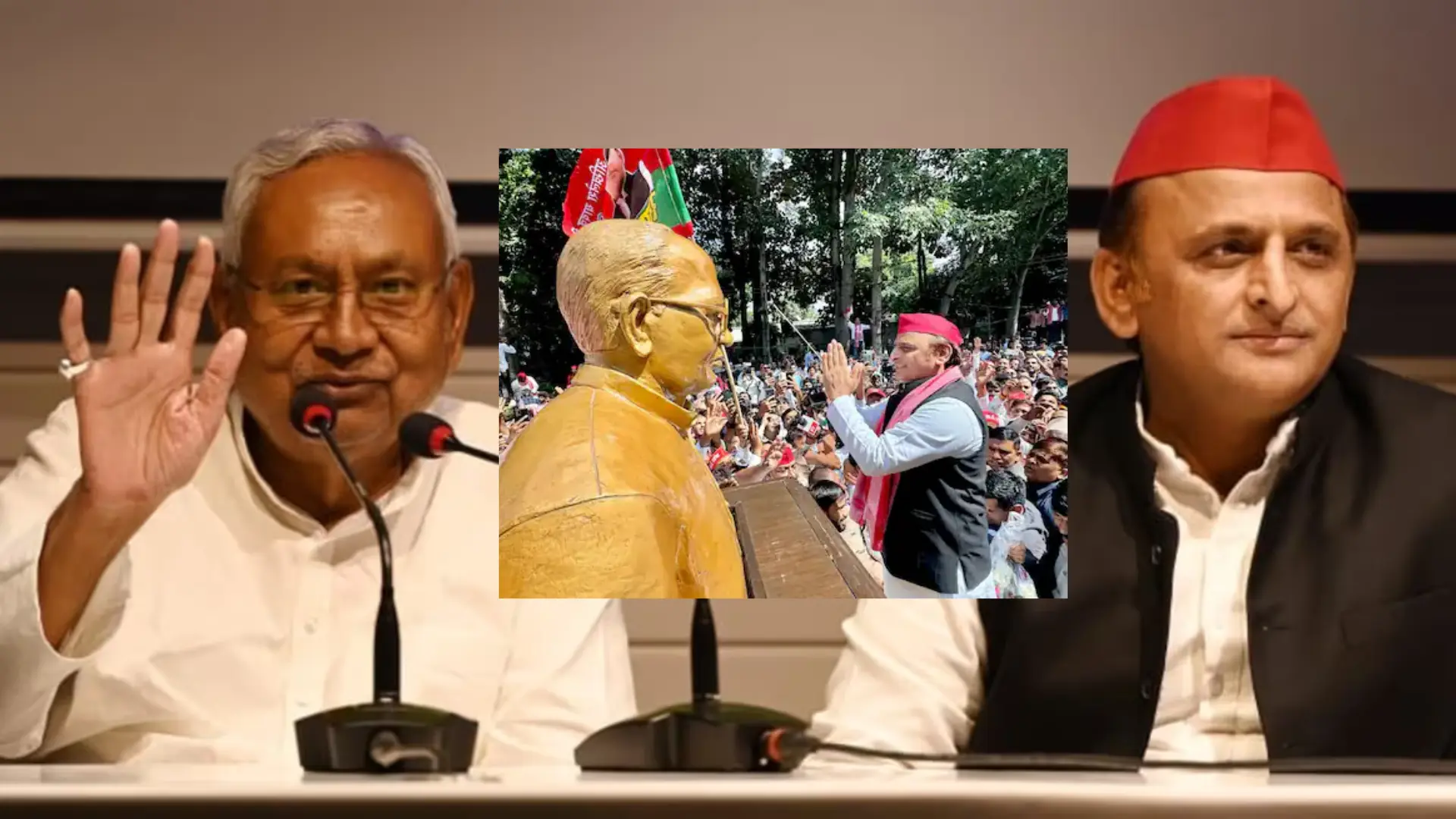On Friday, Akhilesh Yadav, the chief of the Samajwadi Party, faced a significant setback when the Uttar Pradesh Police prevented him from visiting the memorial of Jai Prakash Narayan (JP) on the occasion of the national icon’s 122nd birth anniversary. This incident unfolded just hours after Yadav called on Bihar Chief Minister Nitish Kumar to withdraw his party’s support from the BJP-led National Democratic Alliance (NDA), highlighting the ongoing political tension in the region.
During a gathering with his party workers outside his residence in Lucknow, Yadav criticized the Uttar Pradesh government for blocking access to the memorial. He stated, “The people of BJP are destructive. Give them anything good, and they will destroy it. They stopped us Samajwadi people in the past also.” He also expressed his frustration over the police barricades, remarking that “had it not been a day of festival these wooden structures would not have been able to stop the Samajwadis.”
JDU’s Response
Yadav’s appeal to Kumar was rooted in JP’s historical significance, particularly regarding his opposition to the Congress party during the Emergency imposed by then-Prime Minister Indira Gandhi on June 25, 1975. Reflecting on this, KC Tyagi, a senior member of Kumar’s Janata Dal (United) party, responded by suggesting that it is Yadav who should reconsider his alliance with Congress. He said, “Akhilesh Yadav’s remark is inappropriate… I want to remind him both his father (Mulayam Singh Yadav) and Nitish Kumar were jailed during the Emergency. He should end his partnership with a party that curtailed people’s freedom and violated all democratic norms.”
There have been complexities of alliances within the opposition bloc, especially in light of the recent Lok Sabha elections, where the combined efforts of the Samajwadi Party and Congress resulted in them securing 43 seats in Uttar Pradesh, compared to the BJP’s 33. Despite this setback, the BJP remains in power at the Centre, supported by its allies, including the JD(U), which holds 12 Lok Sabha seats.
Yadav emphasized the importance of JP’s legacy, noting that Kumar’s political emergence was closely linked to the JP movement. He argued, “This is a chance that he has got to withdraw support from a government which is stopping Samajwadis from remembering Jayaprakash on his anniversary.” His remarks reflect a broader struggle over political identity and legacy in the context of contemporary governance.
After being denied entry to the Jay Prakash Narayan International Centre (JPNIC), Yadav symbolically paid tribute by garlanding a bust of JP outside his residence, amidst a gathering of hundreds of party workers. He criticized the BJP for their actions, stating, “What kind of ‘adharm’ they are doing on a day of festival,” referring to the ninth day of Navratri, a significant occasion in the Hindu calendar.
As the political landscape continues to evolve, the legacy of Jai Prakash Narayan remains a powerful symbol for both the opposition and the ruling party, encapsulating the ongoing struggle for democratic values and the right to dissent in contemporary India.
ALSO READ: Akhilesh Yadav Confirms INDIA Bloc’s Unity Amidst Speculations Of Alliance Rift In Uttar Pradesh




















